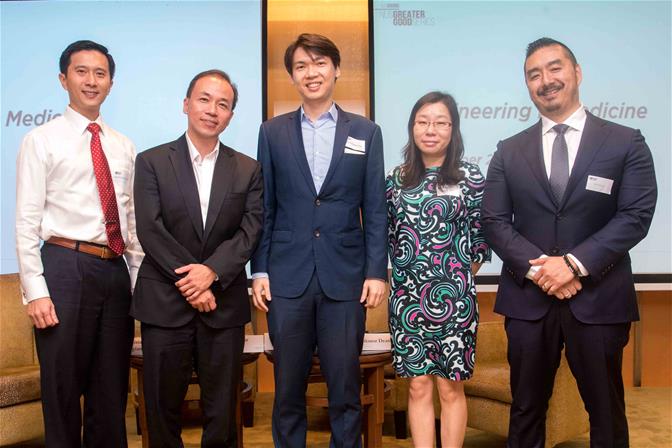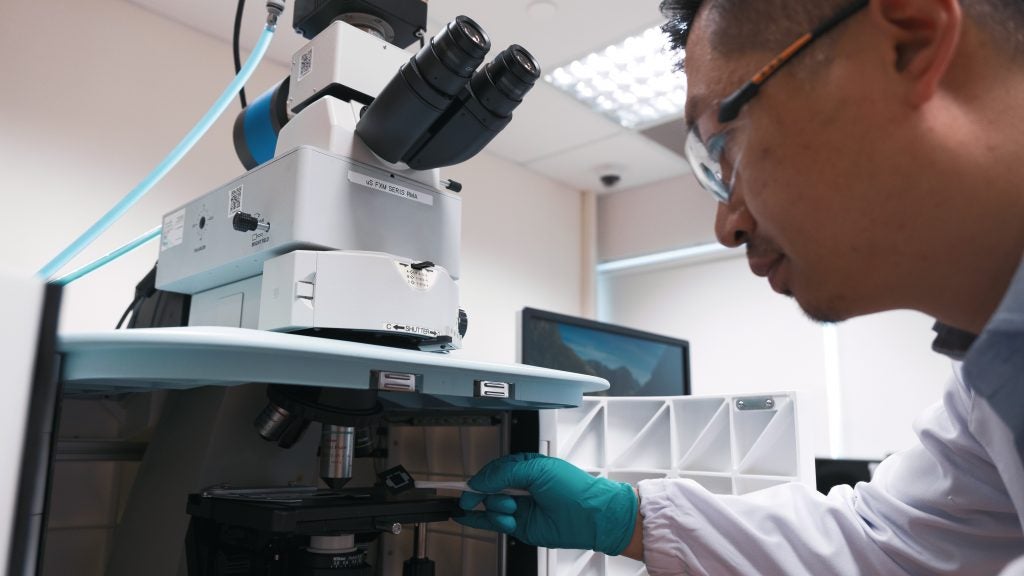
While doctors are saving lives, engineers are making things happen.
When both professions come together in interdisciplinary synergy, the possibilities are limitless.
At the National University of Singapore (NUS) Greater Good Series titled Engineering in Medicine, experts gathered for an engaging discussion on how crucial collaborations between doctors and engineers can change the future of humanity.
"It's an exciting time to be an engineer!" proclaimed Professor Dean Ho, Provost's Chair Professor and the Director of the N.1 Institute for Health.
The Head of the Department of Biomedical Engineering at NUS, who relocated to Singapore from Los Angeles about a year ago, explained why.
"Engineers have been traditionally known as people who can make cool things. But I think as we progress towards immediate needs, healthcare, energy, computing, and so on, it's becoming increasingly important to engineers to be able to deliver on solutions that will have ultimate human impact. - Professor Dean Ho, Head of NUS Biomedical Engineering"
Prof Ho believed that as engineering progresses into the biomedical space, biomedical engineers should evolve into life-saving engineers. Technology alone does not change healthcare. In Singapore, a thriving eco-system of partners such as behavioural scientists, healthcare economists, healthcare administrators and clinicians, allows a true and effective interfacing of different disciplines.
Working in the intersection of engineering and medicine as well, Assistant Professor Benjamin Tee, the President's Assistant Professor at the Department of Materials Science and Engineering at NUS, decided to apply his engineering skills to medicine. He made this choice with the hopes of positively impacting the largest number of people in the shortest amount of time.
Assistant Professor Shao Huilin, Department of Biomedical Engineering, NUS, also works in an interdisciplinary field that delves into personalised medicine, addressing issues such as identifying the right patients for clinical trials and accurately measuring their responses to the trials.
Offering a clinical perspective was Assistant Professor Ngiam Kee Yuan, a thyroid and endocrine surgeon, and Group Chief Technology Officer at the National University Health System (NUHS). His key role is to help the hospital deploy cutting edge technology, especially artificial intelligence (AI), to clinical practice.
"NUHS and NUS are the right places to be for technology deployment, but in the most multidisciplinary way. Different departments are working together for solutions in healthcare and structures are already in place to allow closer integration," Dr Ngiam disclosed.
Dr Ngiam is working on a project where technological innovations and clinical knowhow are recorded in a shared system, with the purpose of accelerating the process of delivering cutting-edge technology into healthcare. At the same time, with funding from donors through the programme 'Project SOUL', the same innovations and technology can be deployed to developing countries that lack world-class surgical facilities and expertise.
With the growing importance of engineering in medicine, NUS Engineering is prepared to equip future engineers with the skills to address medical challenges.
Dean of NUS Engineering, Professor Aaron Thean, emphasised that the engineering education is rapidly evolving to address the concept of "Design Thinking" - driving innovation and technology in a human-centric way. Through the Innovation & Design Programme, popularly known as the iDP, undergraduate engineering students have a unique opportunity to hone their engineering and entrepreneurial skills through real world projects. A new research facility designed to bridge researches between the engineering and medical fields will also be ready soon.
With infrastructure and processes in place, engineering and medical professionals are ready, more than ever, to vastly improve the quality of life for patients through customised treatments and healthcare.
This article was first published on 18 October 2019 in NUSGiving News at http://nus.edu.sg/nusgiving/news-and-events/giving-news/news-detailed-view/newsview/nus-greater-good-series-engineering-in-medicine





